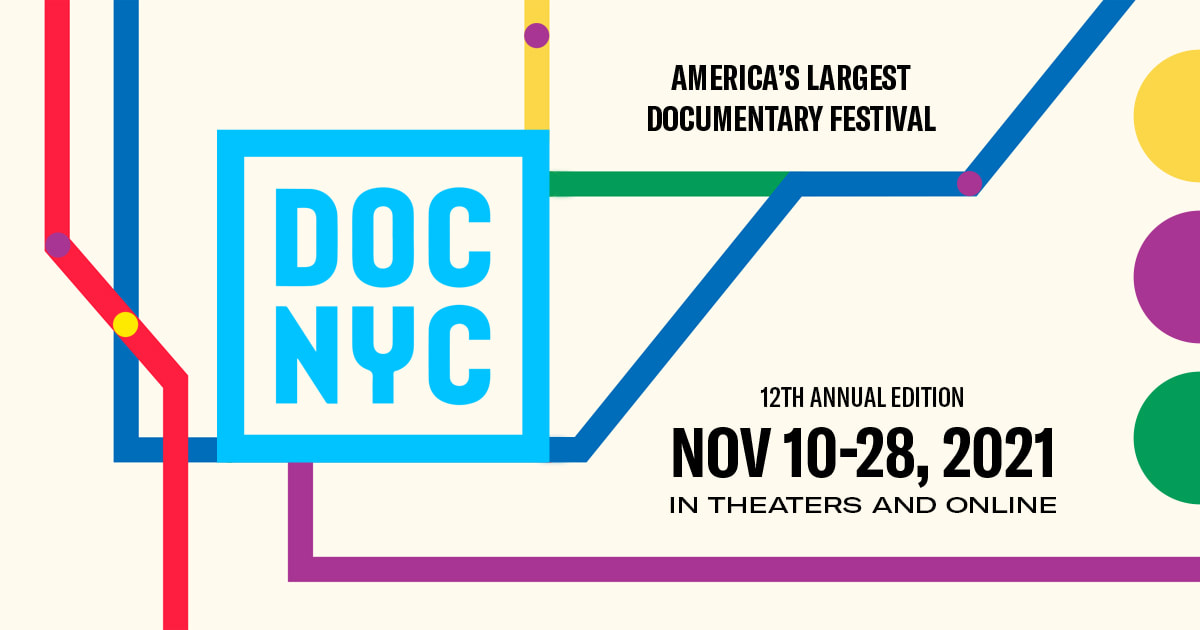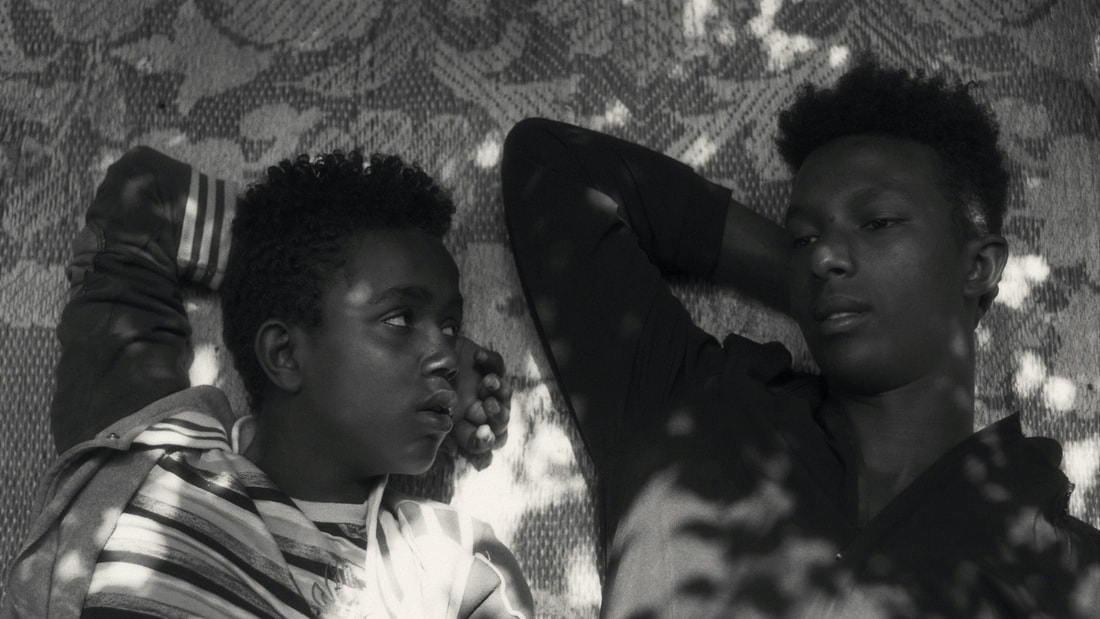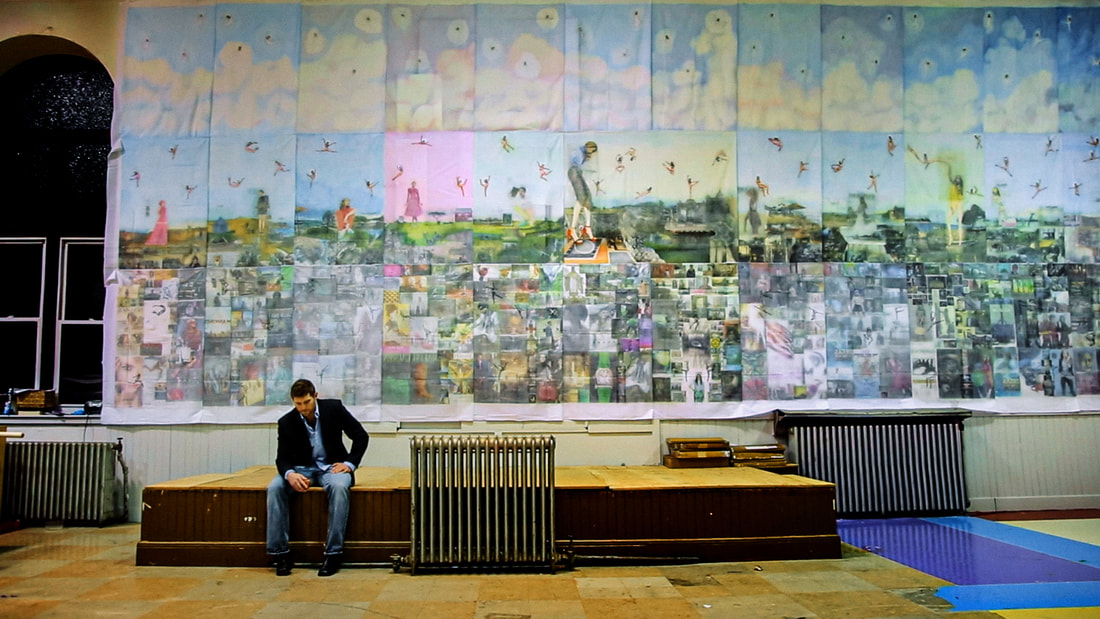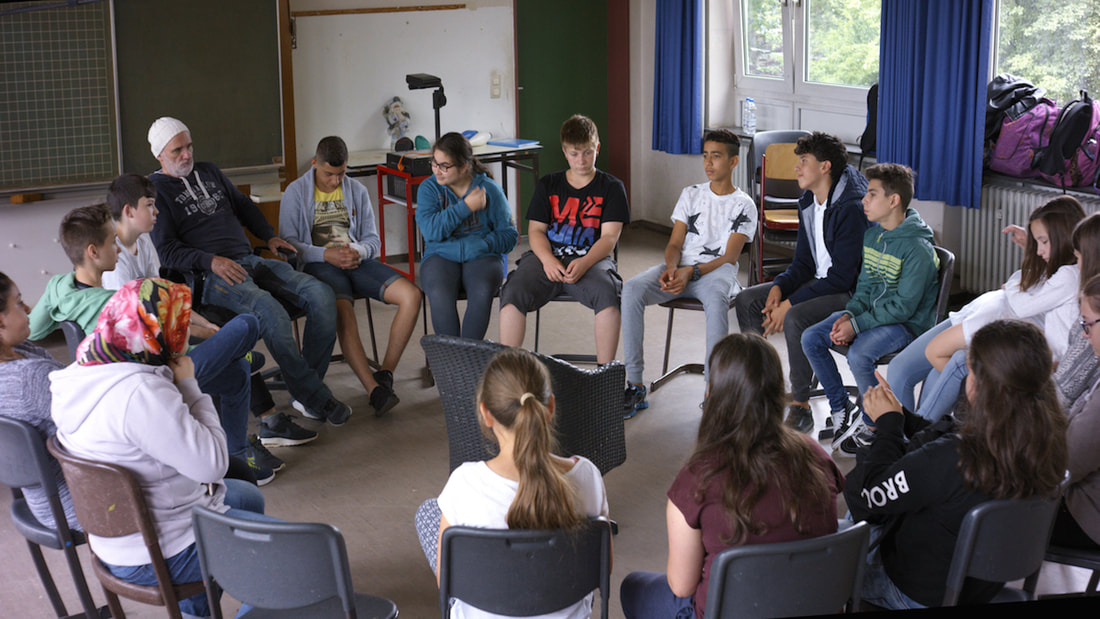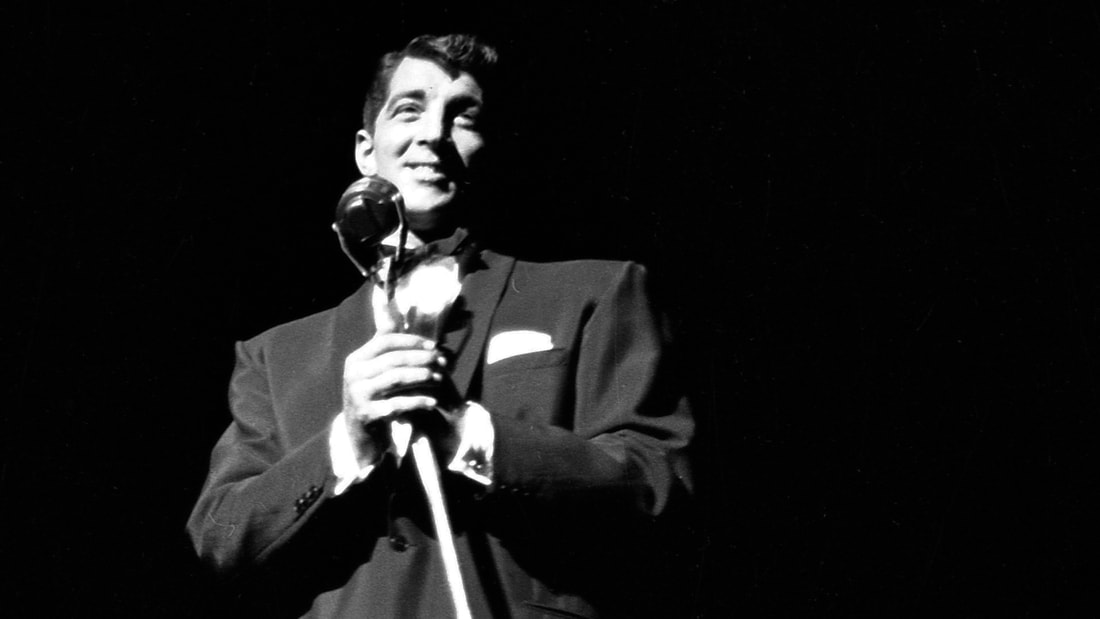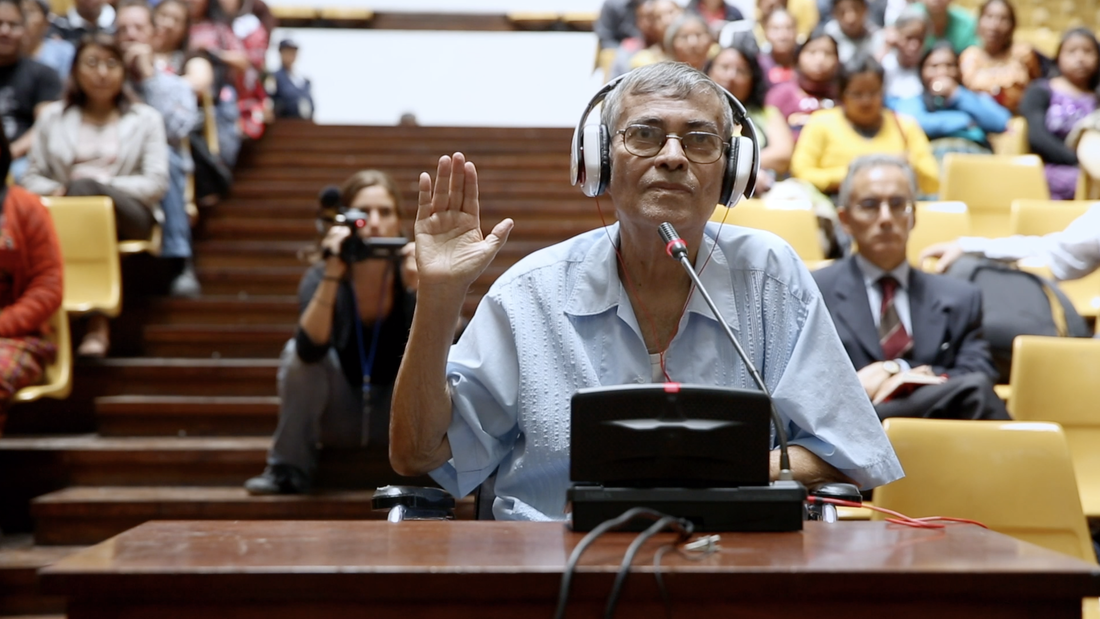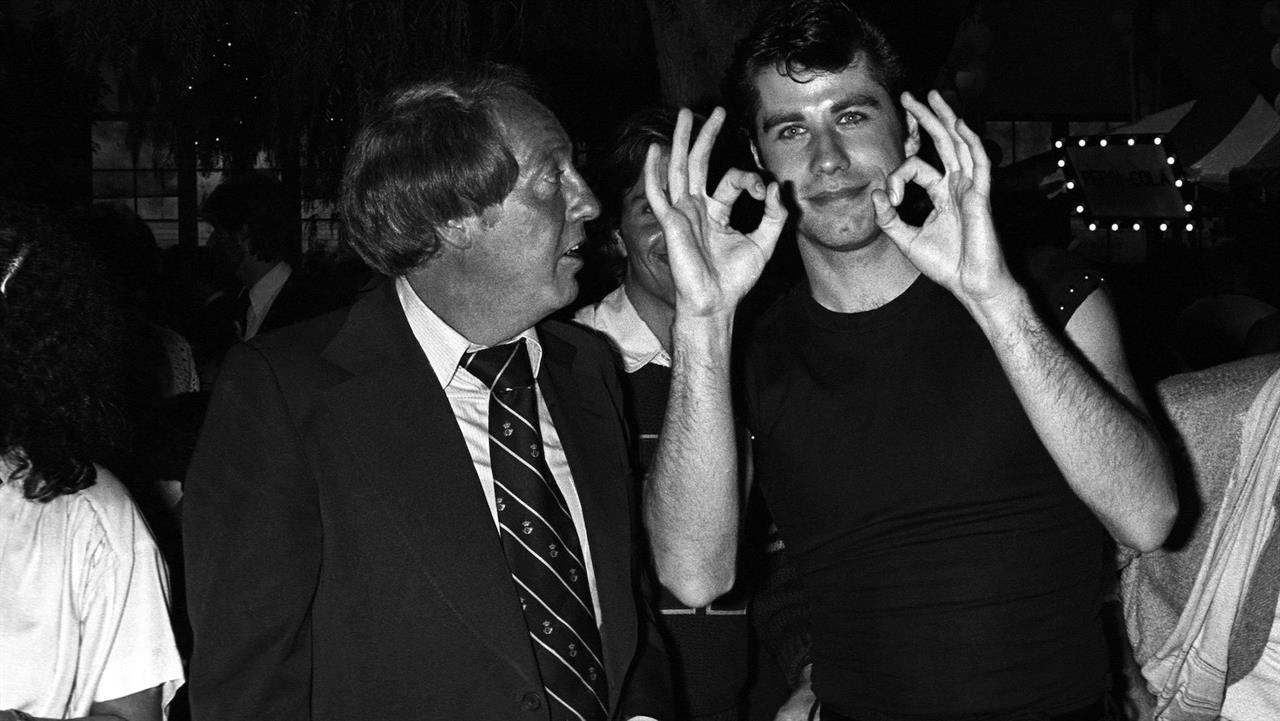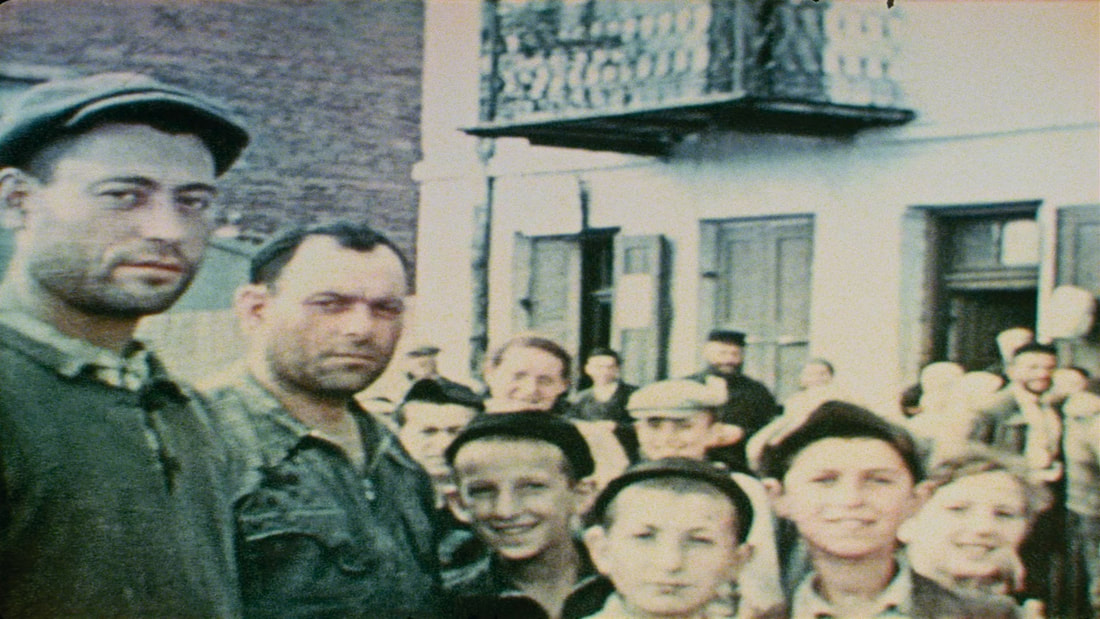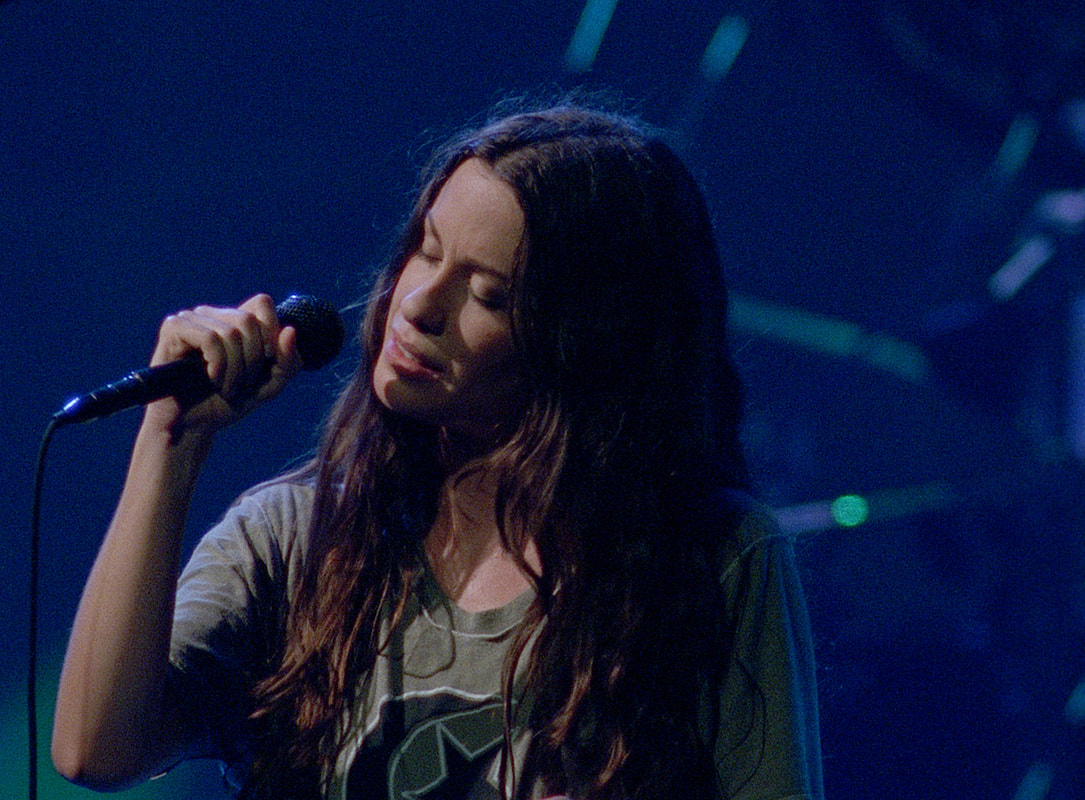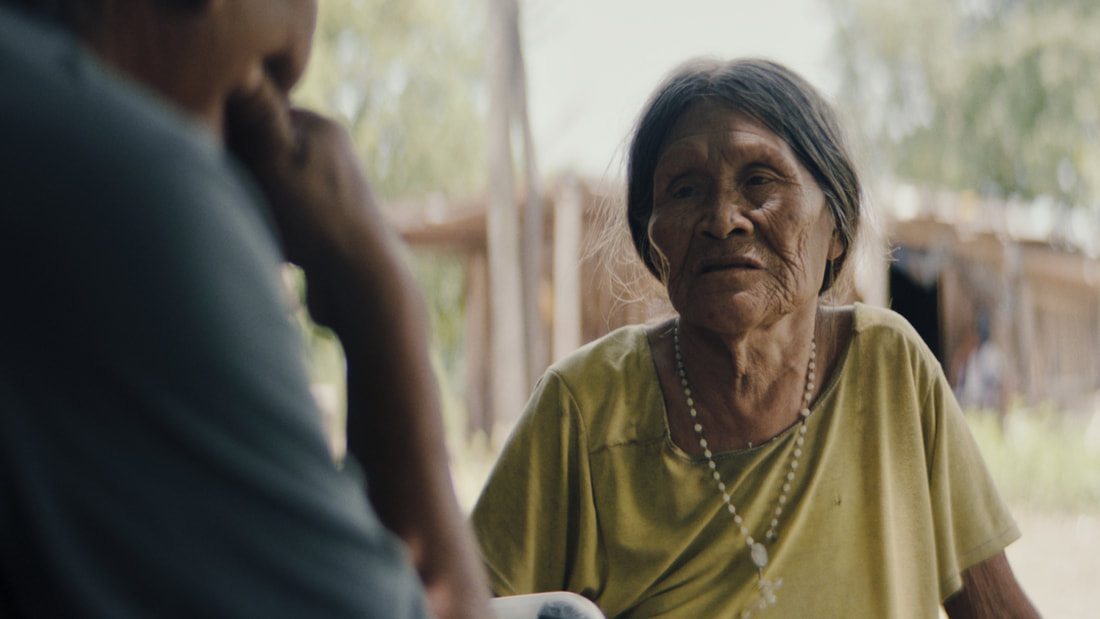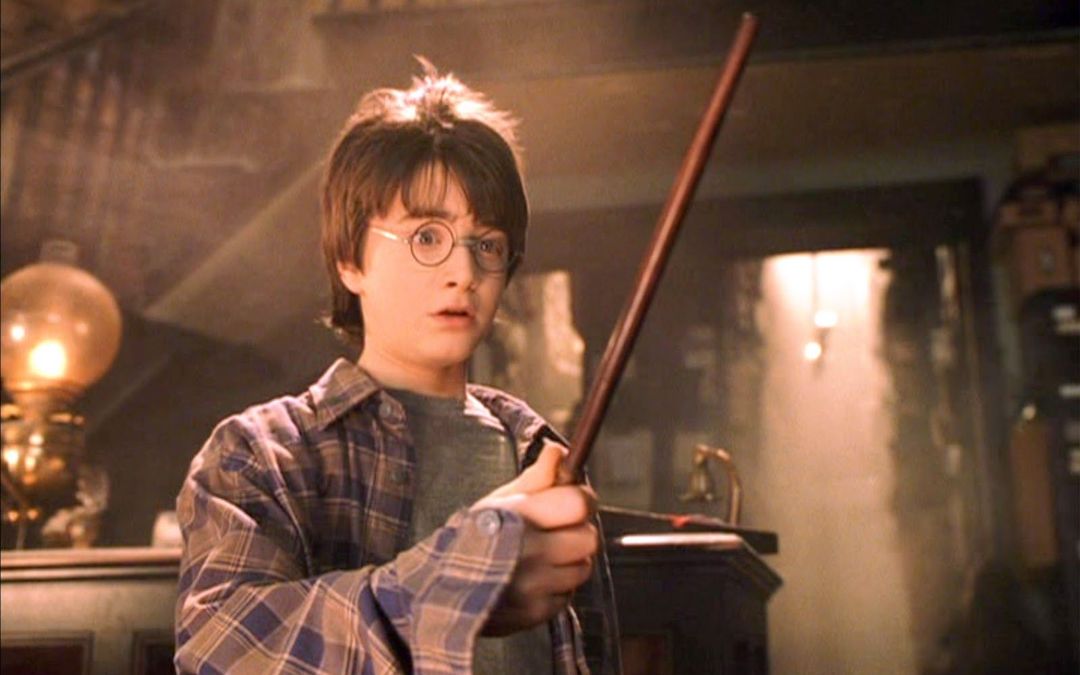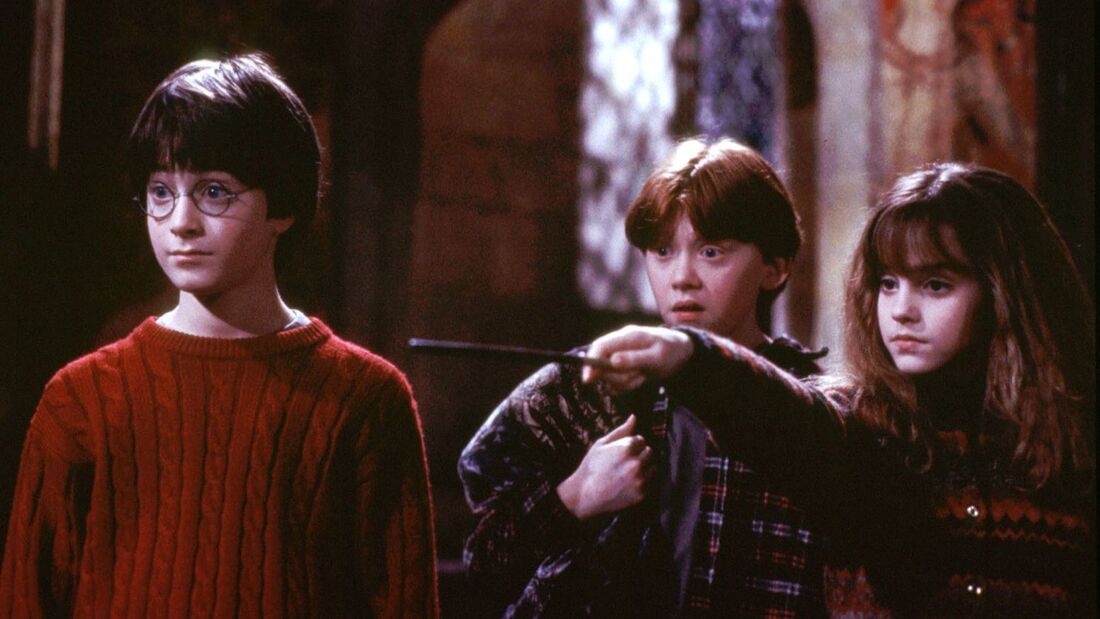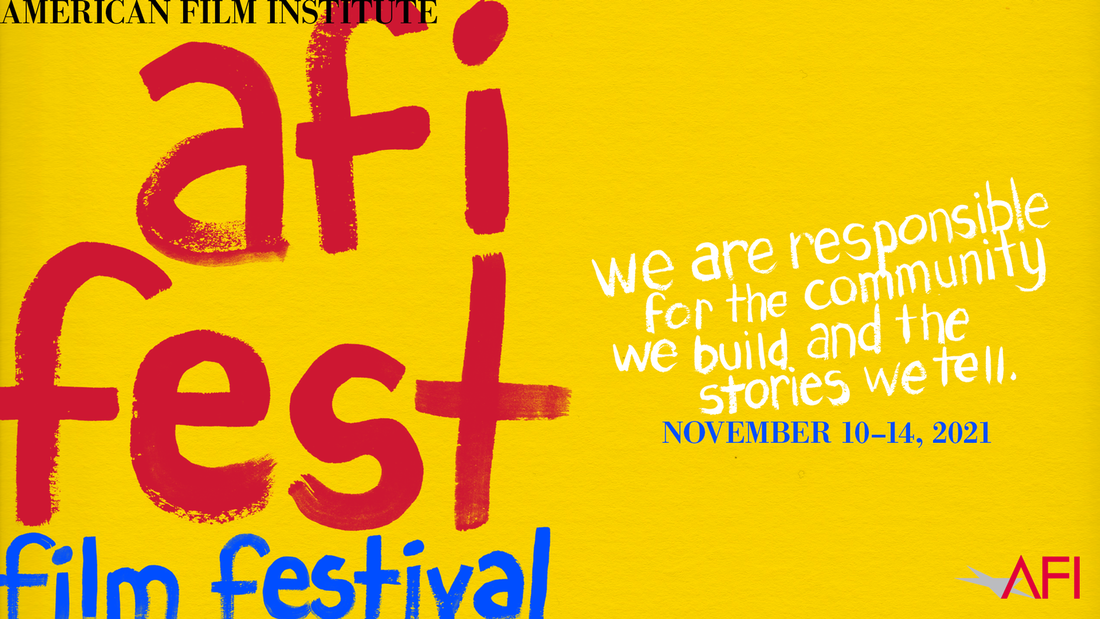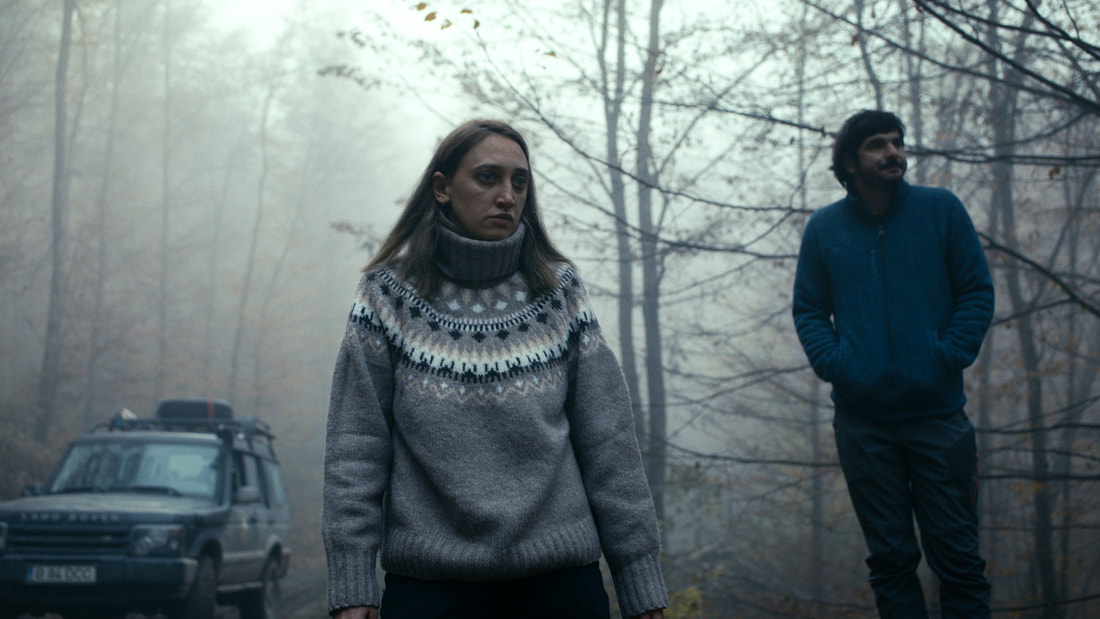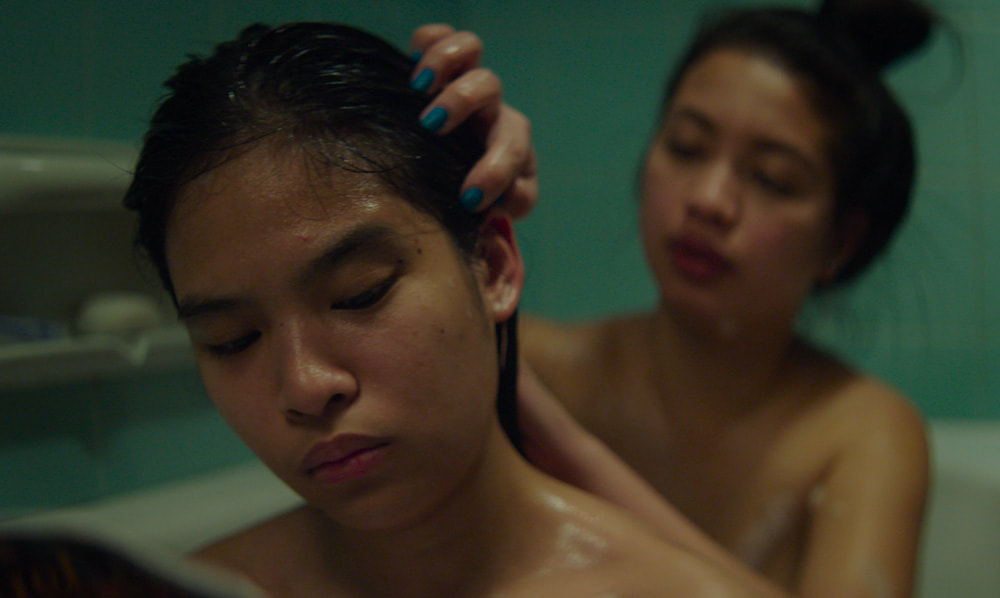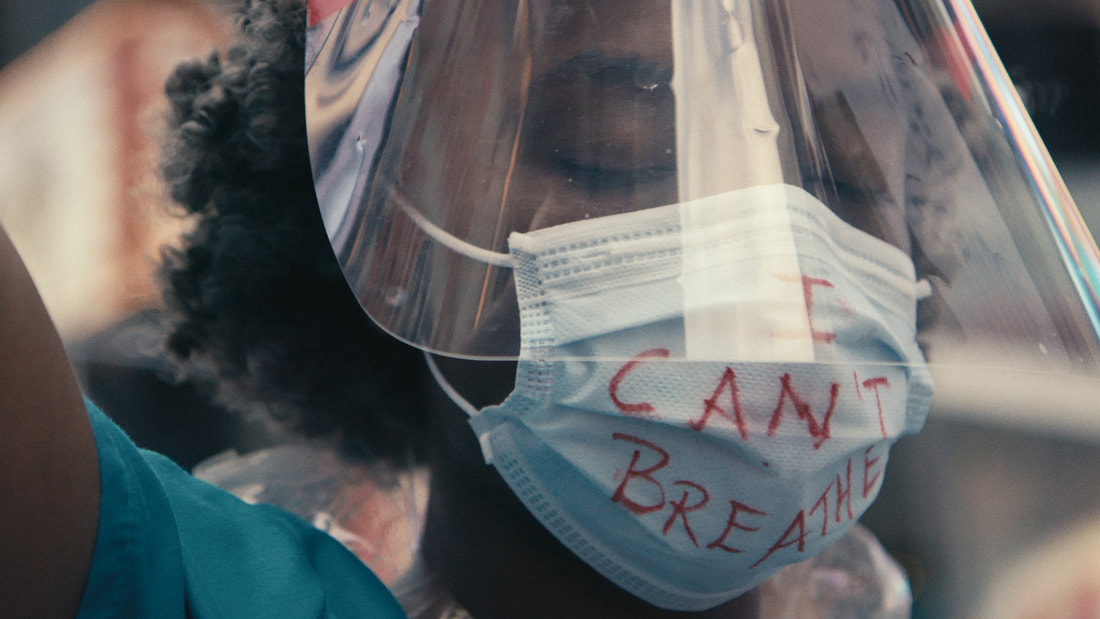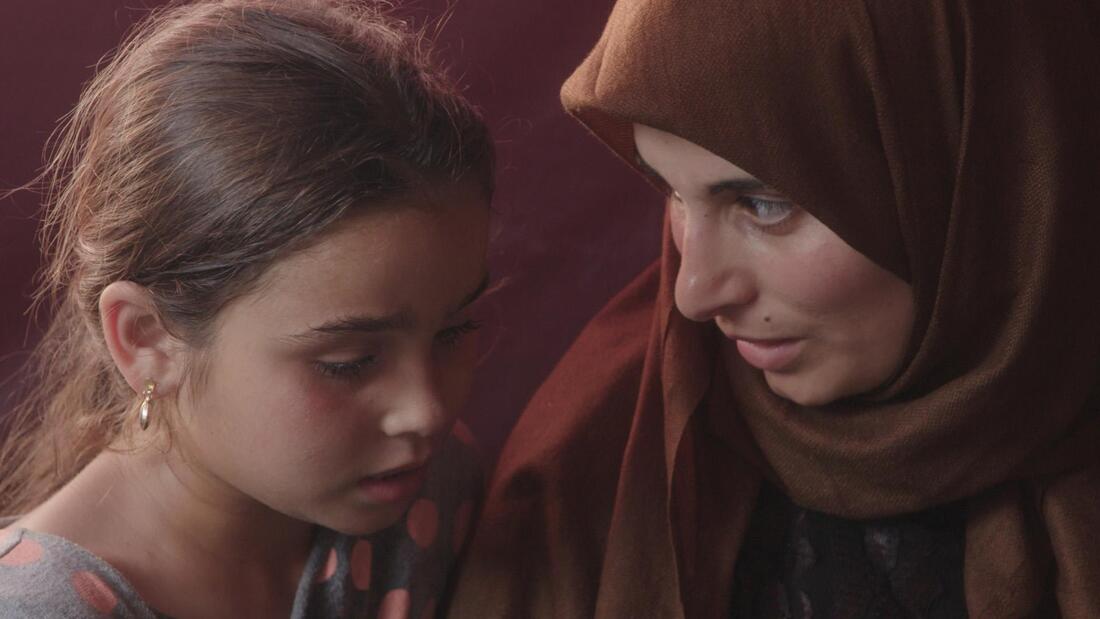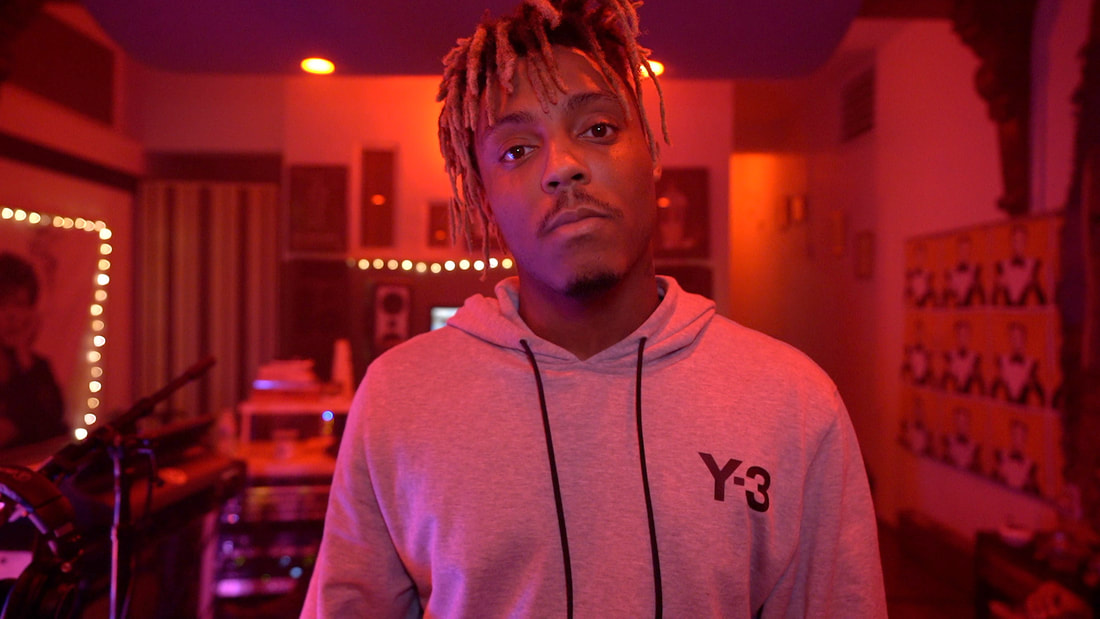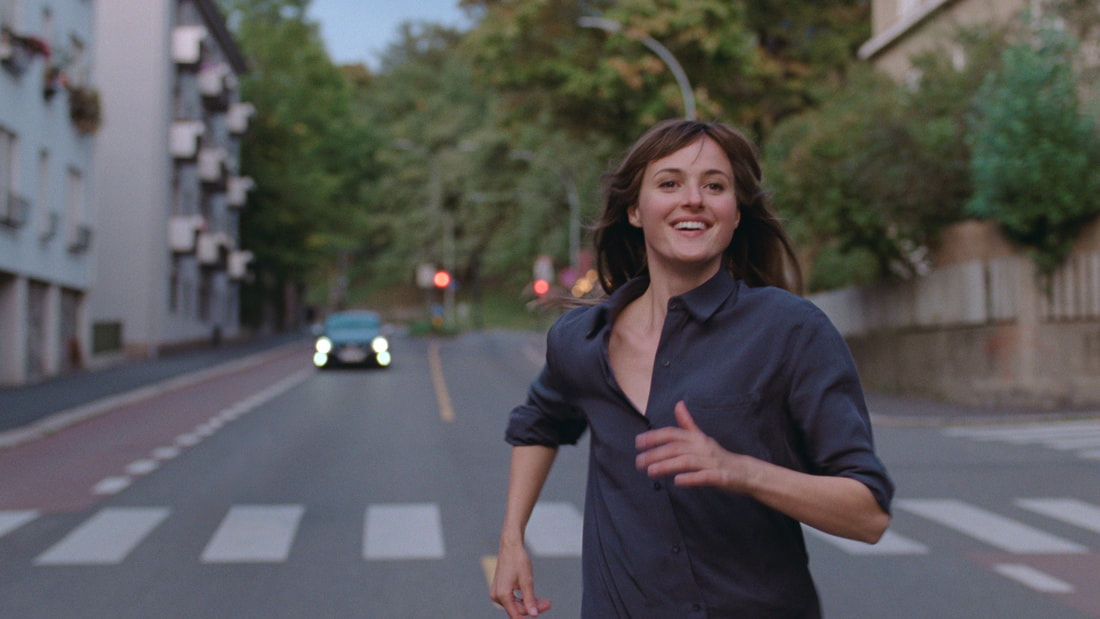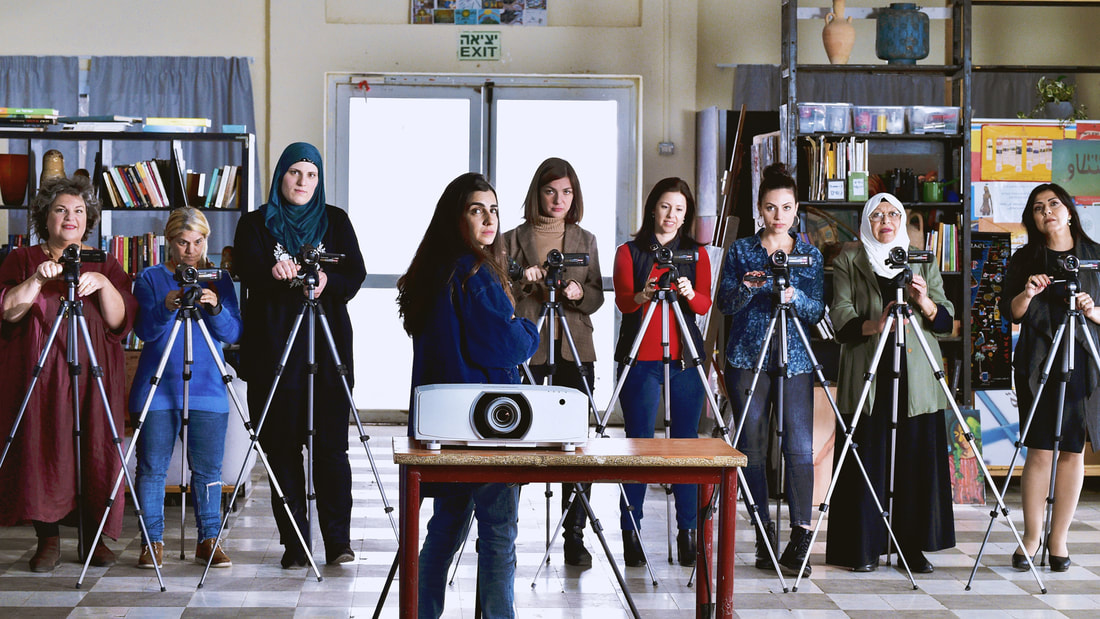|
Review by Sean Boelman
In the thick of autumn, film festivals start to become a showcase of some of the biggest and best cinema that the year has to offer. However, the spotlight is all too often taken by the A-list narrative films competing for above-the-line prizes, leaving some great nonfiction films in the dust. DOC NYC sets out to remedy that, with a program that is both a showcase for some of the films which will be racking up prizes in the months ahead and a platform for exciting new films to be discovered.
For the second year in a row, disappointment media will be remotely covering the DOC NYC film festival which runs November 10-28. Make sure to check out this article in the weeks ahead, as we will be sharing our thoughts on some of the films we get to screen as part of the festival. Faya Dayi
There is an undeniable beauty to Jessica Beshir’s Faya Dayi, but it takes observation to the extreme, basically forsaking traditional narrative altogether. That isn’t to say that the film is entirely meaningless — there are a lot of powerful moments spread throughout — but Beshir’s portrait of this community is perhaps a bit too sprawling for its own good. That said, the gorgeous black-and-white cinematography is a sight to behold, and is worth watching the film for on its own.
Krimes
The story of artist Jesse Krimes is undeniably extraordinary, as he persevered through extraordinary adversity to create some powerful work, but filmmaker Alysa Nahmias doesn’t know what to do with it. This is a pretty standard documentary, and while it hits all of the beats to get a reaction from the viewer, the storytelling is so rushed that it doesn’t have much of a lasting impact. This is definitely a case of a film where the subject is what carries the film.
Mr. Bachmann and His Class
The observational documentary Mr. Bachmann and His Class took the Silver Bear award at the 2021 Berlin International Film Festival, and the reason why is likely its powerful impact. Following a German teacher who approaches education with an uncommon level of empathy, the film is both an examination of the educational system and a portrait of today’s youth and the way they are being shaped by society. And even though watching a bunch of kids go to school may not sound like the most exciting way to spend three-and-a-half hours, it’s unexpectedly absorbing.
Dean Martin: King of Cool
Dean Martin: King of Cool is exactly what one would expect from a documentary that was made to air on TCM: a not too deep, infotainment dive into Hollywood history. And while there are some fascinating tidbits and anecdotes, there’s just not enough going on to make it memorable. Fans of Martin will undeniably find this to be a pleasant nostalgia trip down memory lane, but then again, anyone who has an intimate familiarity with his career won’t find anything new here.
The Silence of the Mole
Anaïs Taracena’s The Silence of the Mole tells a fascinating story, but in a way that is so extraordinarily dry that it loses all of its impact. Although the subject of the film is an exceptional man who showed great bravery in infiltrating and fighting back against the corruption in his government, the film doesn’t really do anything to communicate the power of what he has done. Instead, it misguidedly tries to be poetic, and in the process ends up being quite empty.
Adrienne
Adrienne Shelly’s story is quite tragic but also very hopeful at the same time, and her widower Andy Ostroy’s documentary Adrienne does an amazing job of paying tribute to her while recounting her life in a meaningful way. Part true crime documentary and part biography about an artist with a passion for creating her work, it’s a riveting watch in every sense. Featuring extensive interviews with Shelly’s friends and family, the emotional section of the film dominates even though it’s somewhat uneven.
Torn
There have been quite a few documentaries in recent years that have explored the dangerous sport of climbing, but Max Lowe’s Torn stands out because of its highly emotional nature. Although there are definitely some sporting elements here, the film is more about the grieving process that Lowe faced after his father unfortunately passed while on a climb. It’s a devastating story, and the film is quite effective, but it would have been much more efficient had it been a short rather than a feature.
Mr. Saturday Night
The first half of Mr. Saturday Night, a documentary telling the story of disco pioneer Robert Stigwood, plays out like any other music doc about the history of disco that you have ever seen, but with one damning difference: it has absolutely no energy. However, when it starts talking about the behind-the-scenes drama that surrounded the production of the unexpected smash hit Saturday Night Fever, it becomes a ton of fun to watch and offers some really interesting anecdotes which viewers may not have heard before. It just takes a bit for the film to get there.
DMX: Don't Try to Understand
We have seen plenty of documentaries about late rappers which turn their tragic stories into cautionary parables, but that is not the intention with DMX: Don’t Try to Understand. Although the film does explore the (very public) struggles that Earl “DMX” Simmons had with addiction, it does so in a way that feels extremely empathetic, rather than trying to teach the audience a message through his misfortune. Fans hoping for a documentary heavy on his music may not be fully satisfied, but this is a much more personal film, and is arguably better for it.
Three Minutes: A Lengthening
One would think that the premise of Three Minutes: A Lengthening wouldn’t make for that compelling of a feature documentary, but Bianca Stigter’s work is unexpectedly intriguing. Diving into a single, three-minute home movie of a Jewish community in a Polish village soon before WWII would have devastating effects on them, this film shows the amount of power and information there is in even the briefest of glimpses into the past. It can definitely feel like a film school lecture at times, but the presentation and information is strong enough to hold the viewer’s interest.
Jagged
After its premiere at TIFF, the Music Box documentary Jagged picked up some controversy when its subject turned against the film, claiming that the filmmaker violated her trust. It’s easy to understand why, as like many of the other films in this series, this is a no holds barred look into the life of Alanis Morissette. Although filmmaker Alison Klayman, a self-proclaimed fan, is quick to (deservedly) praise Morissette for the brilliant work she has done as a musician, she also doesn’t shy away from the disparity between the words in her lyrics and what she (and he band) did in their private lives. It’s a fascinating, insightful watch.
Nothing But the Sun
Every year, a few documentaries are submitted by their countries of origin as the representative for Best International Feature, but few earn the honor of a spot on the shortlist, much less a nomination. The Paraguayan film Nothing But the Sun is unlikely to buck that trend, but it’s quite good nevertheless, and it’s totally understandable why this was chosen as a submission. A moving exploration of identity and colonialism, Arami Ullon’s film dissects a very important issue that most people are privileged to not have to think about. The result is poetic and often quite captivating.
The 2021 DOC NYC Festival runs November 10-28.
0 Comments
By Dan Skip Allen
When J.K. Rowling created a book series about a boy wizard it was just that: a book. That is until it grew into a phenomenon that spawned a series of movies, the first of which is called Harry Potter and The Sorcerer's Stone (or Philosopher's Stone in Great Britain). Twenty years ago, this movie series started and it's one of the most popular and profitable in movie history.
From that moment that Hagrid (Robbie Coltrane) uttered those famous words, "You're a wizard Harry," in that dank house on an isolated island who knows where, I was all in on this series of films. Of course, I had read the book already by then, so I was excited to see this book I loved being made into a big-budget feature film. Chris Columbus was already a successful film director by the time Harry Potter and the Sorcerer's Stone was going to be in production, but he wanted to direct this film. His career from working with Macaulay Culkin on the Home Alone films, Adventures in Babysitting, and Mrs. Doubtfire prepared him to direct this film about a bunch of kids in a wizarding school. He has great experience making family films of this ilk. He was a great choice to direct this film. The casting process of Harry Potter and the Sorcerer's Stone was quite arduous, but David Heyman, the producer, found the perfect three leads to star in this film. Daniel Radcliffe (Harry Potter), Rupert Grint (Ron Weasley), and Emma Watson (Hermione Granger) we're all terrific as these three characters. They embodied these three young wizards perfectly. I couldn't see anybody else in these roles. That being said, the films had other characters that had to be cast and these roles weren't given to newcomers. They were won by some of the great British actors of this era the film came out in. Richard Harris (Albus Dumbledore), Maggie Smith (Professor McGonigal), and Alan Rickman (Professor Snape) were all phenomenal as these iconic characters. I could hardly remember other roles these great actors were ever in. That means they were cast perfectly. I love them all in the roles.
The production as a whole was quite successful. The sets worked as well as they could to embody the place envisioned in Rowling's books. The grand scale of the castle, train station, Gringotts, and various locations in the film looked amazing on screen. The behind-the-scenes people from the set production team, camera people, and costumes, and hair and makeup teams are all first-rate. This film looked amazing from that perspective.
With all the great production value and other crafts departments also comes the music of the film. Herman and Columbus enlisted the talents of probably the greatest composer of all time, John Williams. I'm a little biased on that because I have great memories of him as the conductor of the Boston Pops as a child, as well as some of his most memorable scores such as Jaws, Superman, Close Encounters of the Third Kind, The Empire Strikes Back, E.T. the Extra-Terrestrial, and Raiders of the Lost Ark which were etched in my brain at that time. He created a wonderful score with great melodies and a beautiful timeless sound to it. The fact remains that when someone creates something like Harry Potter, such as J.K. Rowling, that millions of people around the world are so enamored with it's hard to create something that lives up to the expectations of what people want to see in this material. All of that is set aside when this film is finally released. This film lived up to the expectations perfectly. It was a critical and financial success by anybody's standards. Twenty years after this film was released, we've gotten all the sequels and plenty of physical media releases and television airings of this film and the rest of them. They continue to be watched by millions of families all over the world. They have made billions of dollars and spawned a stage production as well. As a fan of watching movies and reading books, I can honestly say this was the perfect combination of a literary work being turned into a great film. I loved this movie and I've watched it countless times. I never get sick of this film.
By Sean Boelman
After an astounding virtual edition in 2020 that ended up having a surprisingly strong influence on awards season, AFI FEST is back in 2021 with a hybrid edition featuring a ton of exciting in-person premieres and some great online screenings. Although a majority of the higher-profile titles will only be available to audiences able to attend the screenings in-person in Los Angeles, there are some virtual offerings that are worth checking out too!
We at disappointment media are again excited to be covering the festival remotely, checking out some of the virtual screenings in addition to some other selections which we were able to see. Check out this article throughout the entire run, as we will be adding more capsule reviews with our quick thoughts as we are able to check out more of the films in the lineup! Întregalde
Virtually unclassifiable into a particular genre, the Romanian film Întregalde is nothing if not intriguing. Following a group of aid workers who get stuck in a remote area while on a humanitarian mission, this plays out most akin to a thriller, but the stakes are never made particularly high. The central arc of the script is a pretty average “no good deed goes unpunished” story, and while there are some interesting questions asked about the ethics of interventionism, it isn’t as eventful as expected.
The Tsugua Diaries
A lot of metafiction films tend to be rather pretentious, and this has also been an issue with a lot of films made about the pandemic, but despite these factors working against it, The Tsugua Diaries is surprisingly subtle. It’s a film that explores routine and finding joy in the safety of daily life, a reminder that would have been quite welcome earlier in the pandemic. However, even more intriguing is when the film explores the role of creativity in the times of COVID-19 in a way that is more accurate and honest than has been done before.
Holy Emy
There are a lot of really fascinating things happening in the second half of Holy Emy, but it takes getting through a rather standard first hour to get to the juicy parts. Following two Filipino sisters who are living alone in Greece as one discovers that there may be something unusual about her, this is like a blend of a family drama with some light horror elements, and the tone is compelling, even if it doesn’t have the substance one hopes for.
The First Wave
Last year’s fall festival circuit featured a bunch of documentaries about the beginning of the COVID-19 pandemic, some of which were quite good. One would think that the extra time for which Matthew Heineman’s The First Wave has been gestating would make it even more effective, but that is not the case. Although the film isn’t necessarily poorly-made, there are a lot of things that should rub viewers the wrong way. It’s willing to do anything to get a reaction from the viewer, and that is frustrating.
Casablanca Beats
The Moroccan entry for Best International Feature, Casablanca Beats was one of the less-acclaimed entries in competition at this year’s Cannes. It’s not bad by any means, but there’s also nothing exceptional about this Dead Poets Society by way of rap music. Some of the art being created by the characters in the film is quite good, offering some interesting commentary on Moroccan society, but the film doesn’t give it a chance to have a lingering impact.
Simple as Water
The Syrian refugee crisis is a very important issue in the realm of global politics, and filmmaker Megan Mylan attempts to explore the intimacies of the situation in her film Simple as Water via the perspectives of four individuals. And while there are definitely some resonant moments, the presentation is so dull that it doesn’t pack as much of an emotional punch as it could have. Mylan attempts to create a feeling of perceived neutrality, but that is entirely unnecessary (and even worse, ineffective) here, only making the viewer feel distant from the subjects.
Juice WRLD: Into the Abyss
SoundCloud rappers are definitely a unique breed, and they don’t always make for the most compelling documentary subjects. In fact, their characteristically flamboyant and artificial personalities tend to be annoying, and Juice WRLD: Into the Abyss is not able to escape that curse. In fact, much of the overlong runtime consists of young people saying empty things that they think are profound. And perhaps even worse, the film doesn’t work particularly well as a music documentary, as the concert footage is extremely repetitive. There’s a reason why Juice WRLD gathered such a passionate fanbase so quickly, but this film did not communicate it.
The Worst Person in the World
A romantic comedy told in twelve chapters, the title of The Worst Person in the World is a bit deceiving, as it’s actually quite charming. The complexity in the film is not so much in the story itself, but how it’s told. There is an extraordinary amount of nuance in this film that keeps it from ever reaching melodramatic territory. Lead actress Renate Reinsve does an excellent job in her role, and the film is just excellent as a whole from a technical standpoint.
Cinema Sabaya
Orit Fouks Rotem’s film Cinema Sabaya is as ambitious of a cinematic experiment as the one it depicts, tackling some of the foremost issues that plague the Middle East right now. It definitely bites off a bit more than it can chew at times, but its messages about the patriarchy and the political division that separates the region are really fascinating. That said, an absolutely glacial pace and a relaxed structure keep this film from ever being truly exceptional.
The 2021 AFI FEST runs November 10-14.
|
The Snake HoleRetrospectives, opinion pieces, awards commentary, personal essays, and any other type of article that isn't a traditional review or interview. Archives
June 2024
Categories
All
|
|
|
disappointment media
Dedicated to unique and diverse perspectives on cinema! |

